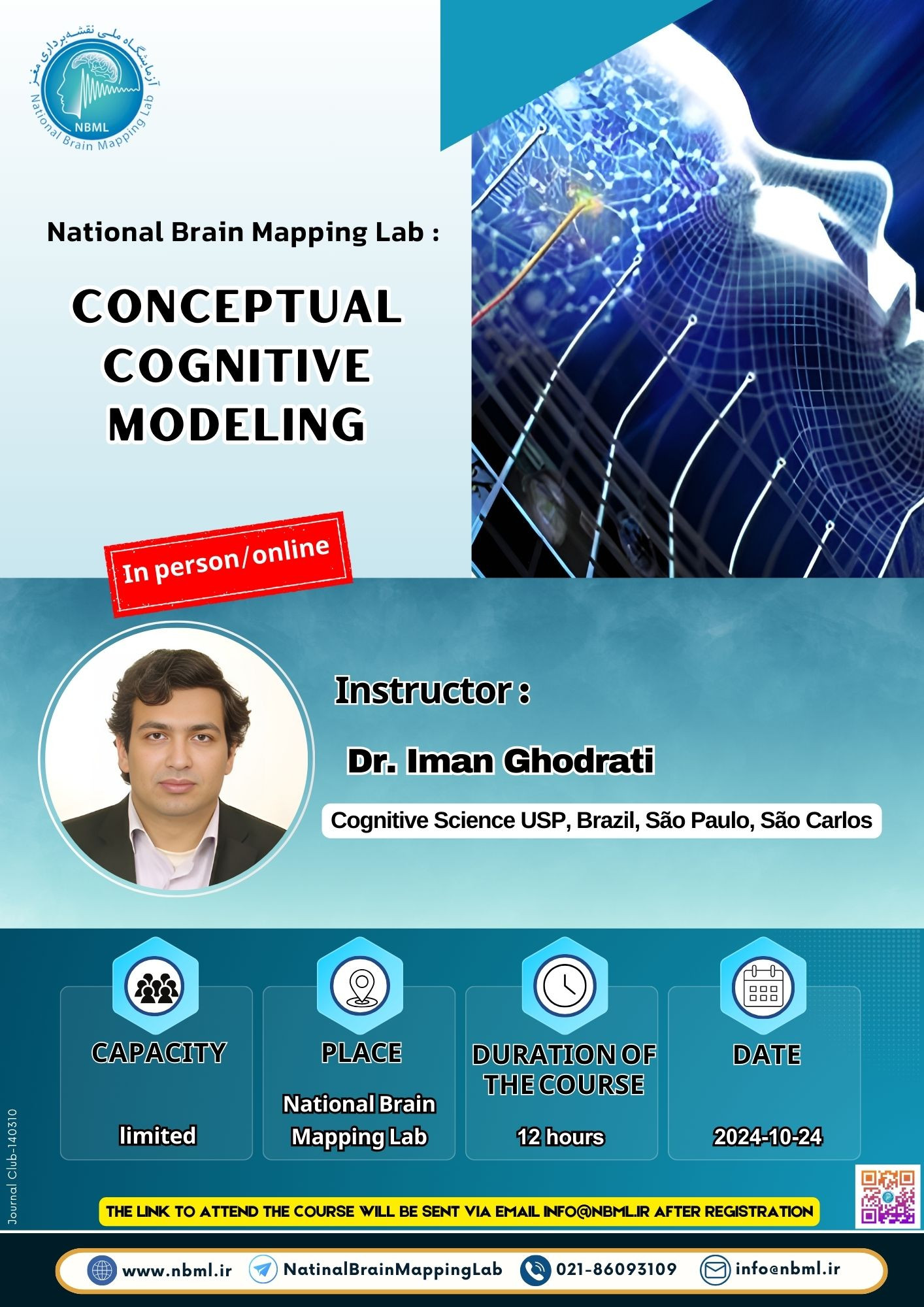Course: Conceptual Cognitive Modeling
Course Information
| Time | October 2024 |
| Place | NBML/Online |
| Remaining Capacity | 40 |
| Event Code | workshop-140310 |
National Brain Mapping Laboratory (NBML):
Conceptual Cognitive Modeling
Course Overview
This course provides a comprehensive introduction to conceptual cognitive modeling. It will equip students with the knowledge and skills to develop cognitive models from conceptualization to implementation. The course emphasizes a hands-on approach, strongly focusing on applying the learned methodologies to real-world problems.
Instructor: Iman Ghodratitoostani Adjunct Scholar, Tehran University of Medical Sciences Senior Researcher, Neurocognitive Engineering Laboratory, University of Sao Paulo
Course Duration: 5 sessions (10 hours)
Pre-requisite: Knowledge of Brain Anatomy, physiology, and cognitive systems may improve learning.
:Course Structure
Session 1: Introduction to Modeling (2 hours)
● Model vs. Natural Phenomena (1 hour):
○ Define models and their role in understanding complex systems.
○ Discuss the relationship between models and the real world.
○ Explore different types of models (mathematical, computational, conceptual).
● Cognitive Modeling (1 hour):
○ Introduction to cognitive modeling and its applications.
○ Overview of cognitive architectures and their components.
○ Discuss the role of cognitive modeling in understanding human behavior and cognition.
Session 2: Six-Step Methodology I (2 hours) ●
● Steps 1-3 of the Six-Step Methodology:
○ Define main theories, processes, and compartments.
○ Define ad-hoc compartments and processes.
○ Parameter estimation techniques.
● Case Study: Neurofunctional and Cognitive Conceptual Model of Tinnitus:
○ Review the model as an example of the methodology.
○ Discuss the theoretical underpinnings and model structure.
Session 3: Six-Step Methodology II (2 hours) ●
● Steps 4-6 of the Six-Step Methodology:
○ Fit the model with empirical results.
○ Design studies to test hypotheses and theories.
○ Model reformulation, pruning, and correction.
● Case Study: Neurofunctional and Cognitive Conceptual Model of Tinnitus (continued):
○ Review the model's validation and refinement processes.
○ Discuss the implications of the model for understanding tinnitus.
Sessions 4 & 5: Hands-on Model Design (4 hours)
● Group-based model development:
○ Students form groups and select a cognitive phenomenon to model.
○ Apply the six-step methodology to develop their models.
○ Provide guidance and support throughout the process.
○ Encourage critical thinking and problem-solving.
○ Final presentations of the developed models.

